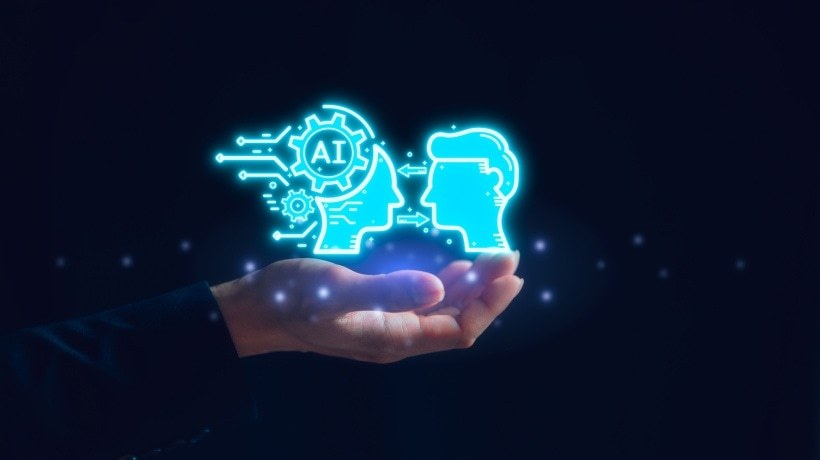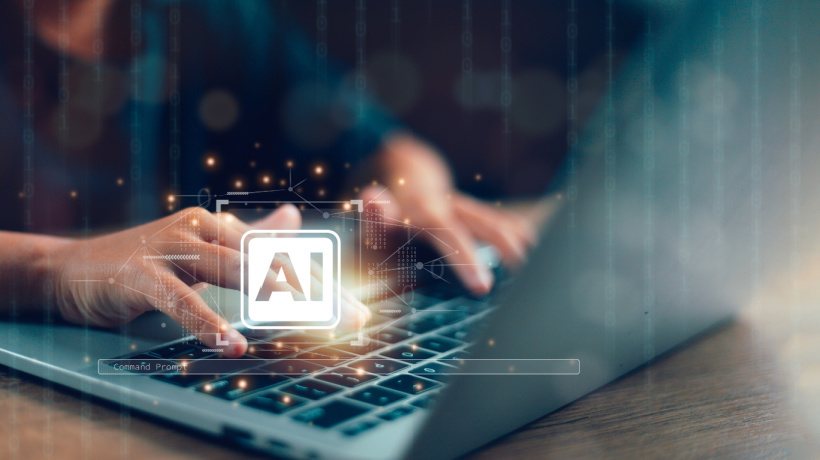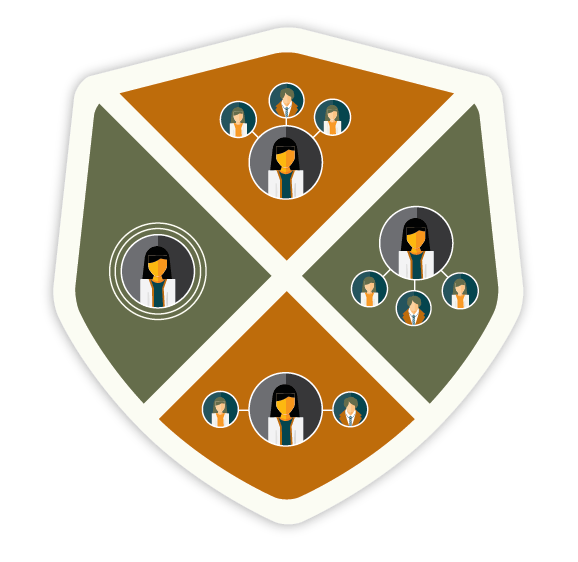How Generative AI Is Liberating L&D Professionals
The landscape of Learning and Development (L&D) is experiencing a seismic shift. Generative AI and Large Language Models (LLMs) aren't just new tools in our arsenal—they represent a fundamental reimagining of what's possible in corporate learning. Yet, amid the excitement and uncertainty, one question echoes through the corridors of L&D departments worldwide: How do we evolve to remain relevant, valuable, and impactful in this new era? The answer isn't about competing with AI. It's about transcending our current limitations and becoming the learning professionals using AI that the future demands.
The Transformation: From Content Creators To Experience Designers
For decades, L&D professionals have spent countless hours creating slides, writing scripts, and building courses. Generative AI fundamentally disrupts this model—not by replacing us, but by liberating us from the time-consuming mechanics of content production.
LLMs can now generate first drafts of training materials in minutes, adapt content for different audiences instantly, and personalize learning pathways at scale. This isn't a threat; it's an invitation to step into a higher-order role. We're no longer bound by the constraints of manual content creation. Instead, we can focus on what machines cannot replicate: understanding the nuanced needs of learners, designing transformative experiences, and fostering genuine human connection in the learning journey.
The Tangible Benefits: AI As Your Tireless Co-Creator
The practical advantages of integrating generative AI into L&D workflows are already transforming how forward-thinking organizations operate.
Rapid Content Development
What once took weeks can now take hours. AI can generate course outlines, create scenario-based assessments, draft microlearning modules, and even produce realistic dialogue for role-play simulations. This acceleration doesn't compromise quality—it establishes a foundation that learning professionals can refine and elevate.
Hyper-Personalization At Scale
Every learner is unique, yet traditional L&D has treated them as cohorts. AI enables dynamic content adaptation based on role, experience level, learning preferences, and even real-time performance data. Imagine a compliance training that automatically adjusts its complexity based on a learner's demonstrated understanding, or a leadership program that generates customized case studies relevant to each participant's specific industry challenges.
Intelligent Support Systems
AI-powered chatbots and virtual assistants can provide 24/7 learning support, answering questions, clarifying concepts, and guiding learners through complex materials. This doesn't replace human instructors—it amplifies their reach and ensures learners receive immediate help when they need it most.
Data-Driven Insights
Generative AI can analyze learning patterns across thousands of employees, identifying knowledge gaps, predicting learning needs, and recommending interventions before performance issues arise. This shifts L&D from reactive to proactive, from anecdotal to evidence-based.
Accessibility And Inclusion
AI can automatically generate alternative text for images, create transcripts and captions, translate content into multiple languages, and adapt materials for different learning abilities. Inclusive learning design becomes the default, not an afterthought.
The Evolution: Becoming The Learning Professionals Of Tomorrow
Embracing AI isn't about learning new software—it's about fundamentally reimagining our professional identity. Here's how we can evolve into the learning leaders this moment demands.
Cultivate Strategic Thinking
As AI handles tactical execution, your strategic mind becomes your most valuable asset. Develop your ability to align learning initiatives with business objectives, anticipate organizational needs, and design interventions that drive measurable impact. Spend time understanding your organization's competitive landscape, strategic priorities, and talent challenges. The learning professionals who thrive will be those who think like business partners, not just training coordinators.
Master The Art Of Prompt Engineering
The quality of AI output depends entirely on the quality of human input. Becoming skilled at crafting precise, contextual prompts is the new essential competency. This requires clarity of thought, deep subject matter understanding, and the ability to communicate nuances effectively. It's a skill that bridges Instructional Design expertise with AI capability.
Deepen Your Understanding Of Learning Science
With AI handling content generation, your expertise in how people actually learn becomes even more critical. Invest in understanding cognitive load theory, spaced repetition, retrieval practice, and the neuroscience of learning. AI can produce content, but only you can ensure it's pedagogically sound and neurologically optimized for retention and application.
Become An AI Curator And Quality Guardian
Not all AI-generated content is created equal. Your role evolves to include evaluating AI outputs for accuracy, appropriateness, bias, and alignment with learning objectives. You're the expert who knows when AI has captured the essence of what needs to be taught and when it's missed critical nuances. This curatorial role requires deep subject matter knowledge and critical thinking skills.
Embrace Data Literacy
The future of L&D is quantified. Develop your ability to interpret learning analytics, design meaningful metrics, and translate data into actionable insights. Learn to ask the right questions of your data and use AI to help analyze patterns you might miss. The learning professionals who can demonstrate ROI and predict learning needs will be indispensable.
Prioritize Human-Centered Design
As AI automates the technical aspects of content creation, the human elements of learning become your differentiator. Focus on emotional engagement, motivation, behavior change, and creating psychological safety. Design experiences that inspire, challenge, and connect. AI can inform and instruct, but only humans can truly inspire transformation.
Build Collaborative Networks
The complexity of modern learning requires diverse expertise. Cultivate relationships with data scientists, UX designers, organizational psychologists, and business leaders. The learning professional of the future works at the intersection of multiple disciplines, orchestrating expertise rather than working in isolation.
Experiment Fearlessly
This is uncharted territory for everyone. Create small pilots, test AI applications, measure results, and iterate rapidly. Document what works and what doesn't. Build your organizational muscle for experimentation and learning. The professionals who will shape the future are those willing to venture into uncertainty with curiosity rather than fear.
The Mindset Shift: From Protectionism To Possibility
The greatest barrier to evolving as learning professionals isn't technological—it's psychological. Many of us have built our careers on skills that AI can now replicate. The instinct to protect our expertise, to resist tools that might diminish our perceived value, is deeply human.
But history teaches us that every technological revolution creates more opportunities than it destroys—for those willing to adapt. The printing press didn't eliminate teachers; it freed them from manual transcription and enabled broader education. The internet didn't make librarians obsolete; it transformed them into information architects and digital literacy guides. Generative AI won't replace learning professionals. It will make mediocre ones obsolete and exceptional ones extraordinary.
The Path Forward: Your Action Plan
Start small but start now. Identify one repetitive task in your workflow and explore how AI might accelerate it. Perhaps it's generating quiz questions, creating first drafts of job aids, or summarizing lengthy source materials. Experience firsthand how AI can serve as your assistant.
Then, gradually expand your AI literacy. Take courses on prompt engineering and AI fundamentals. Join communities of L&D professionals experimenting with these technologies. Share your learnings and learn from others' experiences.
Most importantly, reframe your role. You're no longer primarily a content creator. You're a learning architect, a performance consultant, a change agent, and a strategic partner. AI is the powerful tool that finally allows you to fully step into this elevated role.
The Opportunity Of A Lifetime
We stand at a pivotal moment in the history of Learning and Development. The tools at our disposal are more powerful than at any point in human history. We can create personalized learning experiences for thousands simultaneously. We can predict learning needs before they become performance problems. We can measure impact with unprecedented precision. The question isn't whether AI will transform L&D—it already is. The question is whether you'll be transformed by it or left behind by it.
The learning professionals who will define the next era are those who see AI not as a threat to their expertise but as the catalyst for their evolution. They're the ones who recognize that their true value lies not in what they can manually produce, but in their strategic thinking, human insight, and ability to design learning that genuinely transforms people and organizations.
This is your invitation to step into that future. To become not just a better version of yourself, but the learning professional this moment in history demands. The tools are here. The opportunity is now. The only question that remains is: Are you ready to evolve to become learning professionals in the age of AI?









